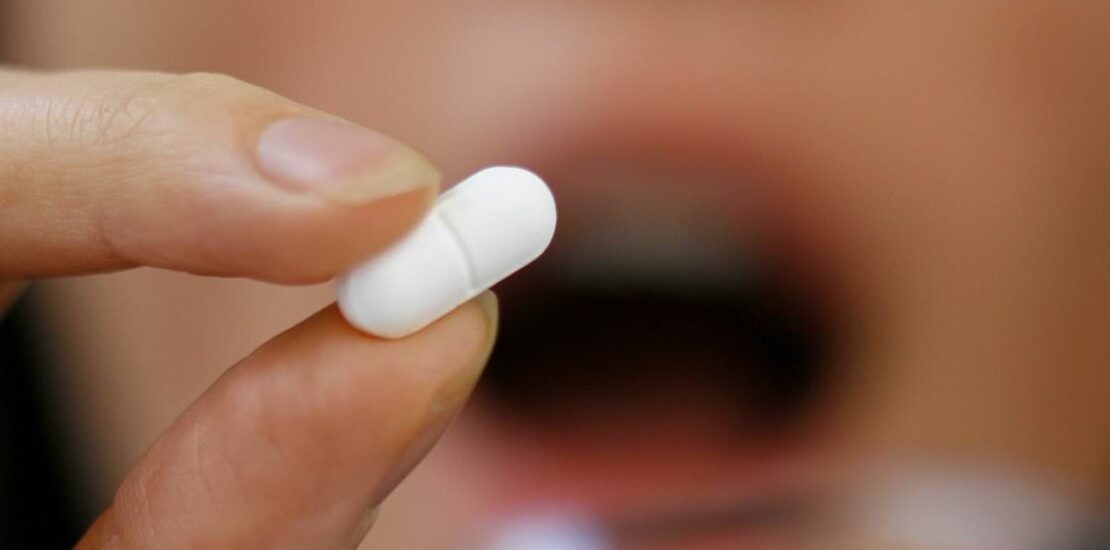- July 7, 2024
- Posted by: Henry Wixdek
- Category: general

Introduction
Depression is a myriad mental disorder that affects exactly one in ten people globally, and I am not surprised that a not-small number of Australians are part of this population. Fortunately, many treatments available can be of great utility in decreasing the symptoms and improving the quality of life of the people concerned.
For this blog, we will discuss and explain the various types of antidepressants used, their advantages, and the importance of understanding each type. With these options in mind, as Your Essential Australian Pharmacy, we are here to assist you and help you make a knowledgeable decision about these therapies. We aim to help you make informed decisions when consulting your doctor regarding this medication.
What Is the Best Antidepressant?
It is a misconception that one belongs to the genre of medicines that can cure the disease effectively without side effects. In the case of an individual, a particular best antidepressant can work, or it can work partially, or it could not work at all. Depression creates a situation that influences an antidepressant, including a person’s health condition, side effects of the antidepressant, or other medicines taken by the person. This part will concern the deliverables out there and how they may benefit various forms of depressive signs.
Navigating Different Types of Antidepressants
It will be helpful to discuss the differences between different types of antidepressants to provide sound decisions about the further therapy strategy. Here’s a quick overview:
- SSRIs: Suggested for almost all classes of depressive and anxiety disorders, including both first and second-generation antidepressants, with fewer adverse effects.
- SNRIs: Proper for severe depression and the treatment of pain, generally beneficial for easing anxiety.
- Benzodiazepines: Highly helpful for managing short-term episodes of severe anxiety and sleep disorders; however, they entail high risk when it comes to dependency.
- TCAs: To be effective for severe depression, moderate to severe side effects may rule out their usefulness.
- MAOIs: Generally recommended for the treatment of atypical depression, this medication, however, comes with a strict dietary guide.
5 Common Antidepressants and Their Types
Antidepressants are categorised into more than one categories primarily based on their chemical composition and the manner in which they influence the brain. The five most commonplace kinds are as follows:
Selective Serotonin Reuptake Inhibitors (SSRIs)
SSRIs are generally the preliminary medication for depression control. They act by raising the quantity of serotonin in the head, a neurotransmitter that aids mood enhancement. Common SSRIs include:
- Ativan Generic 2.5 mg
- Diazepam 10mg
These medications are secure and can be utilised to treat different types of depression.
Serotonin and Norepinephrine Reuptake Inhibitors (SNRIs)
Conversely, SNRIs work by raising the ranges of serotonin and norepinephrine, which can help to reduce depression. They are maximally helpful in conditions wherein the patient is severely depressed or no longer progressing after taking SSRIs. Examples include:
- Diazepam ACTAVIS 10 mg
- Valium Generic 10mg
SNRIs are also effective in Anxiety Disorder patients and have been identified to have roles in handling pain.
Benzodiazepines
Benzodiazepines do not belong to the category of SSRI medicines, but they are used to treat depressive disorders in combination with anxiety and sleeping disturbances. Some commonly prescribed benzodiazepines include:
- Clonazepam Galenika 2 mg
- Lorazepam Genus 2. 5 mg
Keep in mind that benzodiazepines are made for use in the short term and that, consequently, the risk of becoming dependent cannot be entirely ruled out.
Tricyclic Antidepressants (TCAs)
Although Health-wise less used compared to modern medicines due to many side effects, TCAs are a formidable tool in the treatment of depressed patients. They rely on their impact on numerous neurotransmitters within the brain. Because they are compelling, they can be applied when the depression is severe and has not been managed by other medicines.
Monoamine Oxidase Inhibitors (MAOIs)
It is essential to state that MAOIs are used for treating atypical depression. They act by inhibiting the reuptake of monoamine neurotransmitters, which contributes to their concentration. Because they curb the intake of certain food items and may come with side effects, they are often administered when other forms of antidepressants have been exhausted.
The Best Antidepressant for Anxiety and Depression
For the treatment of anxiety as well as depression, medications, for instance, SSRI and SNRI, are preferred often. They are mainly available as a combination product, which usually helps address the signs of both diseases. As we have seen, you must consult your doctor to determine the correct use that fits you according to your symptoms or medical history.
Antidepressant Withdrawal Symptoms
Discontinuation of antidepressant medication should be done gradually and under the guidance of a qualified healthcare practitioner because of withdrawal effects. Common signs include:
- Nausea
- Dizziness
- Rebound depression
- Anxiety
- Irritability
These side effects should be minimised so that the dose is gradually reduced when the patient is preparing to stop the medication.
Antidepressant Side Effects
Awareness of common and less frequent side effects of antidepressants can help prevent unrealistic expectations of treatment and failure to follow through with medical prescriptions. Common side effects include:
- Dry mouth
- Weight gain or loss
- Insomnia or hypersomnia
- Fatigue
- Sexual dysfunction
Patients should always inform their doctor regarding the side effects encountered for adjustments, or another better-suited medication may be prescribed.
List of Low-Dose Antidepressants
For some patients, starting with a low dose of an antidepressant is a strategic approach to minimise side effects while assessing effectiveness. Medications such as Lorazepam Genus 2.5 mg and Diazepam 10mg can be initiated at lower doses and adjusted based on treatment response.
Signs Your Antidepressant Dose Is Too Low
At other times, even the prescribed dose of the antidepressant may not be sufficient to do a great job of managing the symptoms. Signs that your dose might be too low include:
- Persistent depression symptoms
- Lack of improvement after several weeks
- Minimal side effects (in the context of under-dosing)
Signs Your Antidepressant Is Too Strong
On the other hand, higher dose of an antidepressant has adverse consequences as well as to the overall health condition of the patient. Symptoms of excessive dosing include:
- Over-sedation or drowsiness
- Agitation or increased anxiety
- Physical symptoms like rapid heartbeat or tremors
List of Low-Dose Antidepressants
It is, therefore, reasonable for some patients to be started on a low dose of an antidepressant to reduce the side effects that are most likely associated with the medicine in question yet determine the benefit that comes with the medicine, such as Lorazepam Genus 2.5 mg Medicines and so on. Diazepam 10 mg (a benzodiazepine) and Sodium valproate 500 mg can be started at half these dosages, and the doses increase depending upon response to therapy.
What to Expect When Increasing Antidepressant Dosage?
In this case, therefore, it is necessary to know what to anticipate when the dosage of antidepressants is increased about possible positive impacts and possible drawbacks. Here are some key points to consider:
- Improved Symptoms: The primary purpose of raising the dose is to increase the output of the medicine in controlling symptoms associated with depression. Ability to make more decisions, increased desire to engage in daily activities, and decreased rate of hopelessness or depression.
- Adjustment Period: The impact of a higher dosage is felt after several weeks. Still, when a patient starts changing their doses, some symptoms can worsen for a while or slightly deteriorate before they start improving.
- Side Effects: Depending on the dosage, side effects may occur, and in the case that they do occur, side effects may escalate with higher doses. Potential side effects could be the emergence of nausea, dizziness, sleep disorders, and increased levels of anxiety. Such are typically short-lived, though they might disappear as your system gets used to the elevated dosage.
- Close Monitoring: It is crucial to have direct supervision by a healthcare provider during this time. This also facilitates minimising any side effects and alteration of dosage if necessary.
- Communication: It is essential to keep a good report with your doctor and inform them anytime you develop symptoms different from those you initially experienced or if you develop side effects from the medicines. This will enable you to establish a balance between the efficiency of the medication and the degree of discomfort experienced by the subject.
An essential step towards improving the effectiveness of antidepressant medications may sometimes include a process of up-titrating the dosage, and this is not without consequences and should be under the supervision of a qualified healthcare provider.
Exploring the Most Effective Antidepressants for Various Symptoms
Antidepressants have drawbacks, and overall efficacy can depend on the patient and the symptoms being treated. Further down this page, we examine how different kinds of antidepressants may meet particular requirements, which would let us determine which ones would suit your circumstances best.
Best Antidepressant for Weight Loss
Generally, patients who take antidepressants are known to record changes in their body weight. While some medicines will cause weight gain, some others will help to lose some weight. Regarding the issue of antidepressants that include negligible effects on weight or where the antidepressants aid in weight loss, SSRIs are most advised due to the lesser influence on appetite. They include other factors about which you should speak to your doctor whenever you select a medication.
Best Antidepressants for Energy and Motivation
Depression also impacts the overall energy and willingness to perform tasks in a subject. Some newer antidepressants, particularly from the SNRI groups, are known to have the capability of increasing energy. Medicines like Diazepam ACTAVIS 10 mg and Valium Generic 10 mg are of great importance for depressants who feel less energy to perform activities in life as these substances reduce the amount of both serotonin and norepinephrine to produce vitality and good mood.
Strongest Antidepressant for Severe Depression
This could be due to biological factors or severe depression that results in highly intrusive symptoms, which might demand more potent antidepressants. TCAs and MAOIs are much more robust and are used increasingly when other medicines have become ineffective remedies. Due to their powerful effect on neurotransmitters, these agents are appropriate for severe symptoms and are associated with a high risk of side effects. Before following any advice, try to consult a healthcare provider to make careful and wise decisions.
Best Antidepressant for Sleep and Anxiety
Sleep disorders are common in depression patients, as well as anxiety, which makes the management of patients’ situations challenging. Like clonazen Galenika 2mg and lorazepam genus 2 Benzodiazepines. These problems include nausea, vomiting, inflammation, diarrhea, and constipation, which can be managed effectively using 5 mg of Lorazepam. They enhance anxiety and sleeplessness, reducing effects, and act quite fast but are known to be addictive and may cause several withdrawal symptoms.
Choose Your Antidepressant Wisely!
Selecting the proper antidepressant is essential since this is the first step towards mitigating the effects of depression. Due to these and many other differences, you must choose the type that would suit you, depending on your health profile, specific symptoms, and overall life.
However, at Australian Pharmacy, we embrace and encourage attaining improved mental health and well-being by providing credible assistance from experts. I want to reemphasise that you did not choose to experience depression; however, with the right approach as well as the proper treatment, depression is treatable. It is sensible to always seek your doctor’s advice, especially before altering your medication; your doctor and you can devise a healthy lifestyle out of your situation.
The Australian Pharmacy crew will gladly help you when you have other worries or illnesses that need to be treated with medication. If you need assistance, contact our customer support at (61) 480 027 921 or email [email protected], or visit our website for more. We aim to help you maintain your health and achieve satisfaction!



